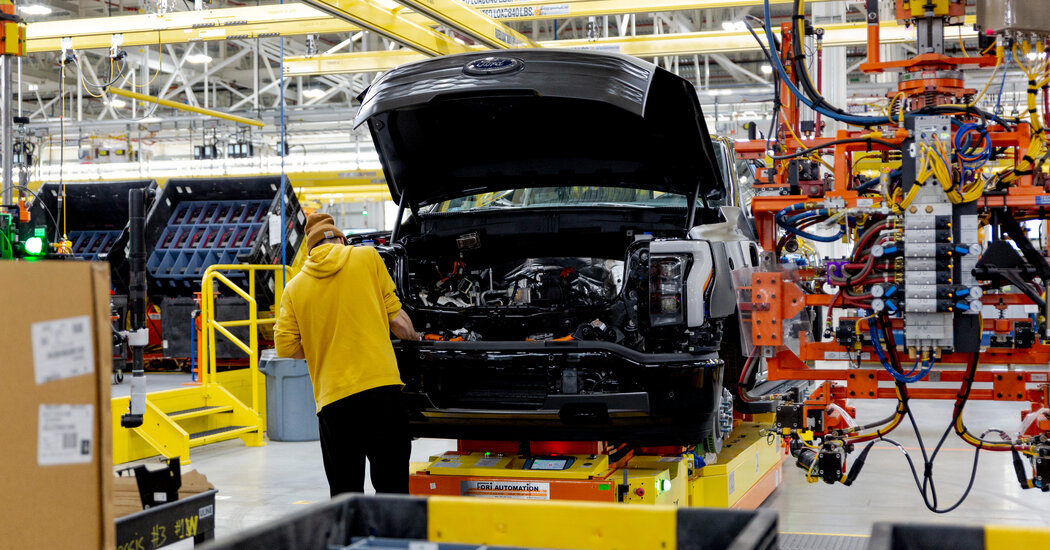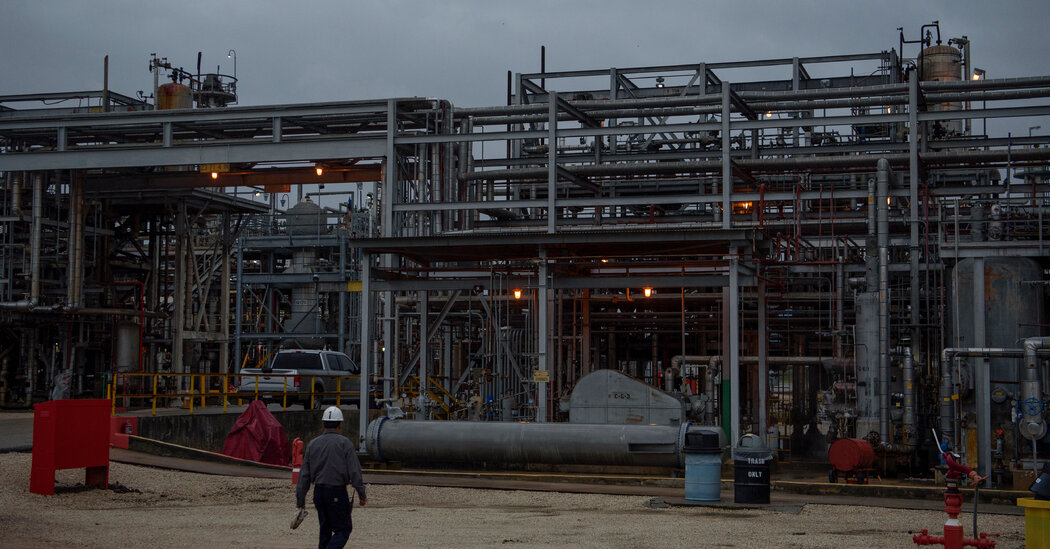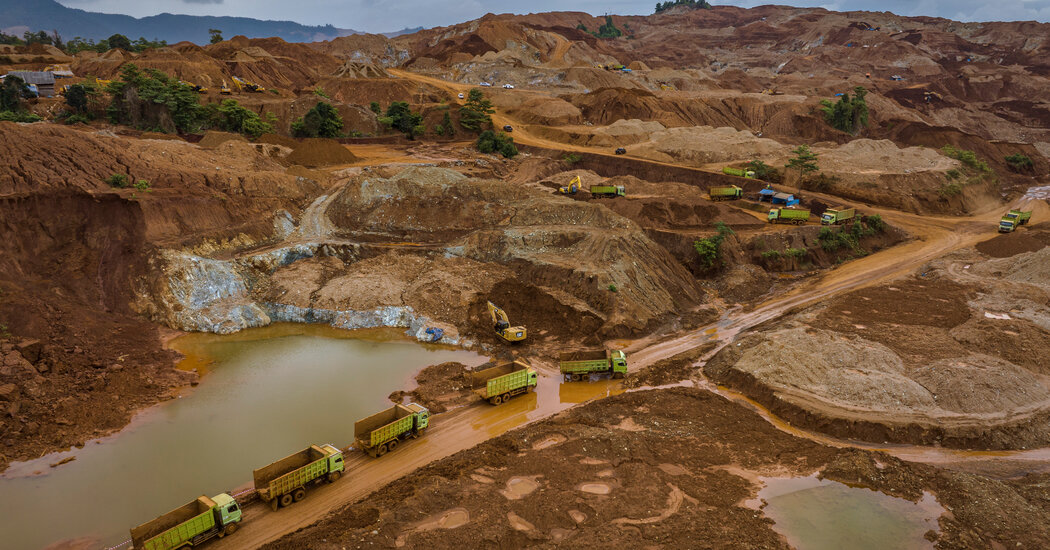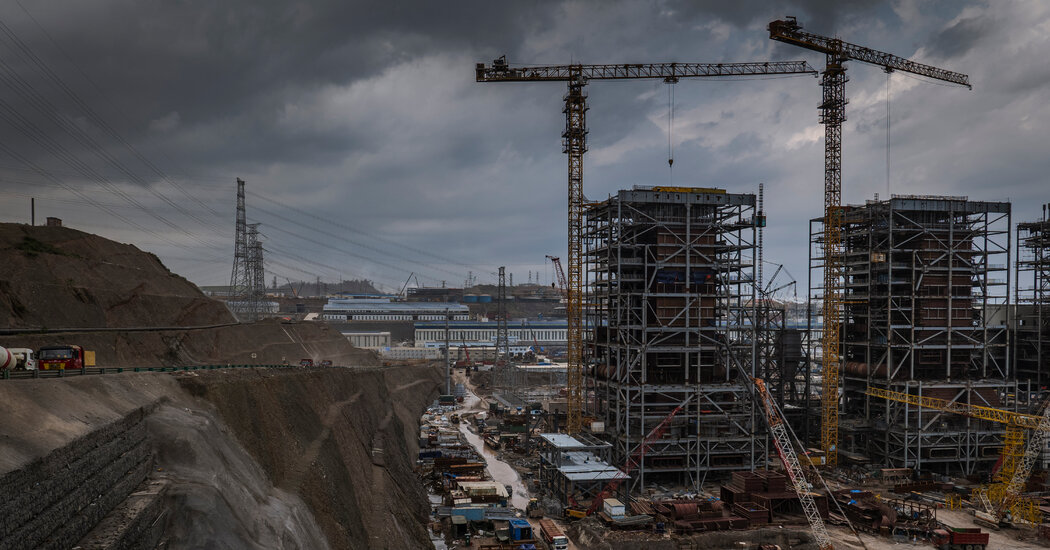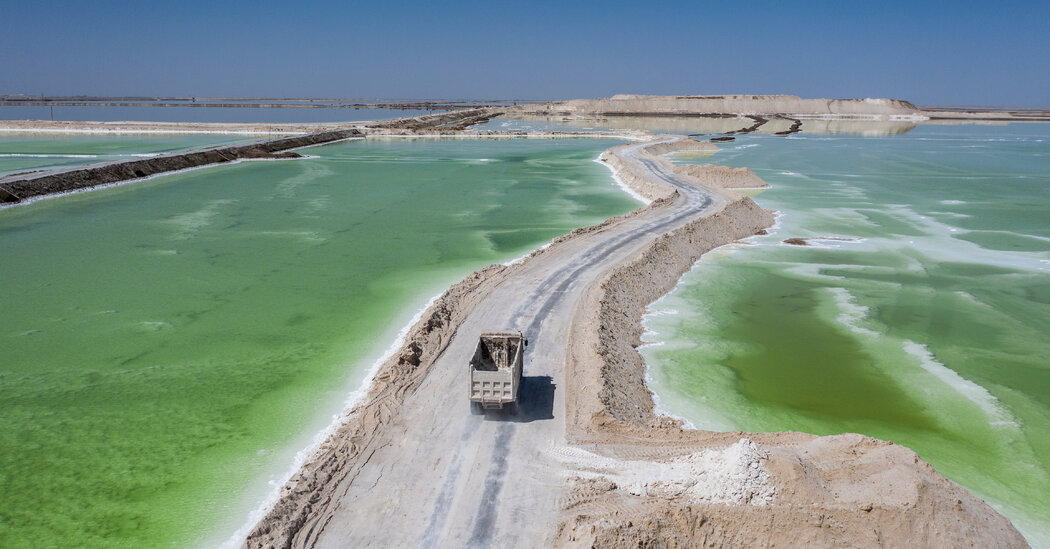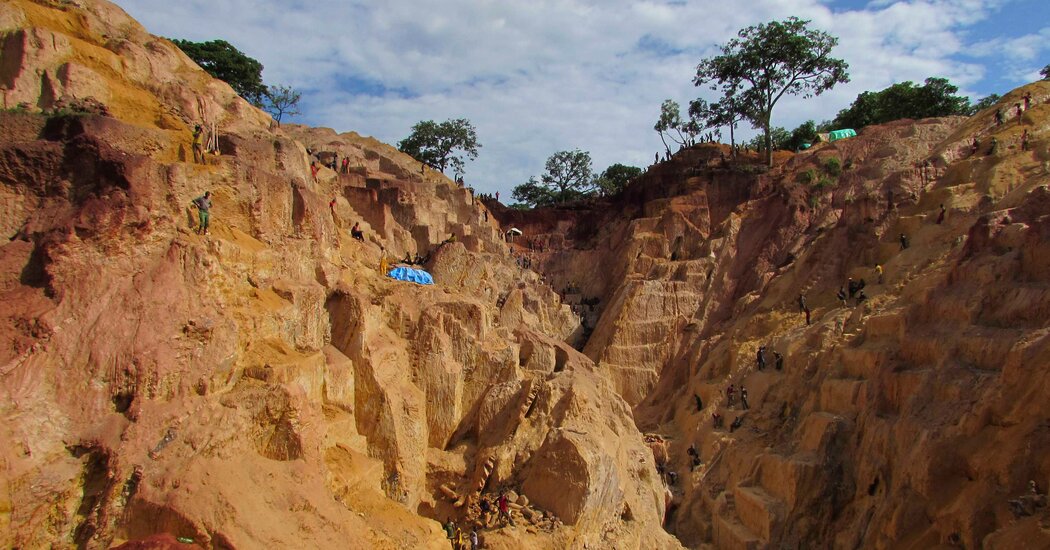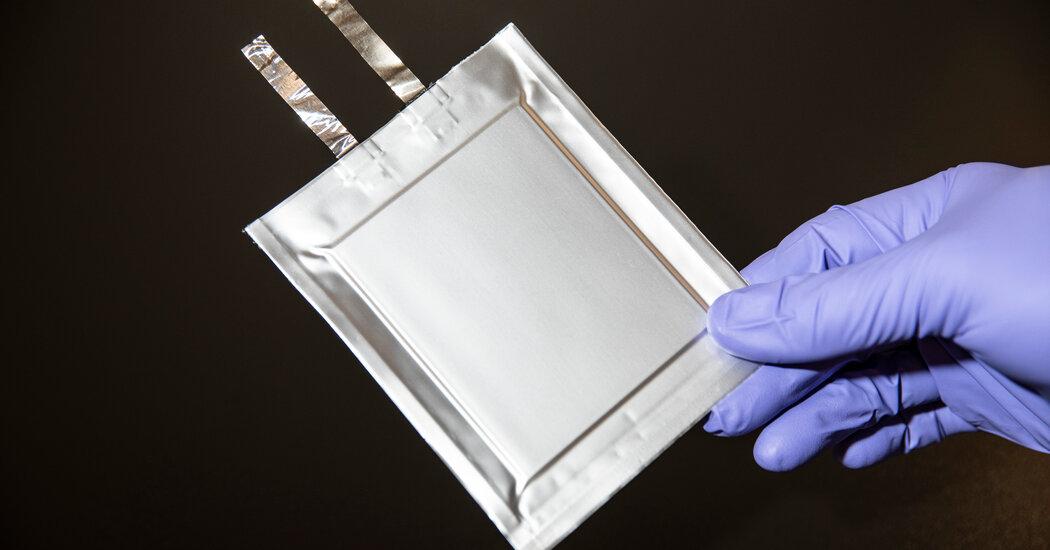Secretary of State Antony J. Blinken wrapped up a four-nation tour through Africa on Thursday with a visit to Angola, an oil-rich former Cold War battleground that has become the site of a struggle for 21st-century economic influence. During his visit to the coastal capital, Luanda, Mr. Blinken spotlighted major American investments in Angola, including more than $900 million for solar energy projects and $250 million to upgrade a rail corridor that carries critical minerals, including cobalt and copper, from central Africa to Angola’s Atlantic port of Lobito. Those solar…
Tag: Metals and Minerals
U.S. Limits China’s Ability to Benefit From Electric Vehicle Subsidies
The Biden administration proposed new rules on Friday aimed at shifting more production of electric vehicle batteries and the materials that power them to the United States, in an attempt to build up a strategic industry now dominated by China. The rules are meant to limit the role that firms in China can play in supplying materials for electric vehicles that qualify for federal tax credits. They will also discourage companies that seek federal funding to build battery factories in the United States from sourcing materials from China or Russia.…
U.S. Debates How Much to Sever Electric Car Industry’s Ties to China
The Biden administration has been trying to jump-start the domestic supply chain for electric vehicles so cleaner cars can be made in the United States. But the experience of one Texas company, whose plans to help make an all-American electric vehicle were upended by China, highlights the stakes involved as the administration finalizes rules governing the industry. Huntsman Corporation started construction two years ago on a $50 million plant in Texas to make ethylene carbonate, a chemical that is used in electric vehicle batteries. It would have been the only…
A New Law Supercharged Electric Car Manufacturing, but Not Sales
President Biden’s signature climate law has stimulated a surge of investment in electric vehicle production across the country, including tens of billions of dollars on battery plants across the South and new assembly lines near the Great Lakes. Based on early evidence, it is succeeding at a goal that economists have long considered difficult and costly: using the power of government to rapidly grow a new industry. That growth could prove crucial for the other side of the electric vehicle equation: enticing more consumers to buy them. That’s because Mr.…
How Geopolitics Is Complicating the Move to Clean Energy
He is known as the Minister for Everything. From the government offices of Indonesia’s capital to dusty mines on remote islands, Luhut Binsar Pandjaitan commands authority as the nation’s essential power broker. A four-star general turned business magnate turned cabinet officer, Mr. Luhut’s paramount aspiration is transforming Indonesia into a hub for the production of electric vehicles. But as he pursues that goal, he and his country are increasingly vulnerable to geopolitical forces beyond their control. Though this archipelago nation has long sidestepped entanglements in ideological rivalries, it is increasingly…
China’s Nickel Plants in Indonesia Created Needed Jobs, Plus Pollution
For most of his 57 years on the island of Sulawesi, Jamal was accustomed to scarcity, modest expectations and a grim shortage of jobs. People mined sand, caught fish and coaxed crops from the soil. Chickens frequently disappeared from front yards, stolen by hungry neighbors. Mr. Jamal, who like many Indonesians goes by one name, regularly rode his motorbike to construction jobs in the city of Kendari, a half-hour away. Then, six years ago, a towering smelter rose next to his home. The factory was built by a company called…
The U.S. Needs Minerals for Electric Cars. Everyone Else Wants Them Too.
For decades, a group of the world’s biggest oil producers has held huge sway over the American economy and the popularity of U.S. presidents through its control of the global oil supply, with decisions by the Organization of the Petroleum Exporting Countries determining what U.S. consumers pay at the pump. As the world shifts to cleaner sources of energy, control over the materials needed to power that transition is still up for grabs. China currently dominates global processing of the critical minerals that are now in high demand to make…
Can the World Make an Electric Car Battery Without China?
It is one of the defining competitions of our age: The countries that can make batteries for electric cars will reap decades of economic and geopolitical advantages. The only winner so far is China. Despite billions in Western investment, China is so far ahead — mining rare minerals, training engineers and building huge factories — that the rest of the world may take decades to catch up. Even by 2030, China will make more than twice as many batteries as every other country combined, according to estimates from Benchmark Minerals,…
Mysterious Killing of Chinese Gold Miners Puts New Pressure on Beijing
The Chinese embassy in the Central African Republic had a stark warning for its compatriots in the landlocked nation: Do not leave the capital city of Bangui. Kidnappings of foreigners were on the rise, and any Chinese person outside of Bangui was to leave those areas immediately. Less than a week later, on March 19, a group of gunmen stormed a remote gold mine far away from Bangui and killed nine Chinese workers. The Central African government has said that it investigated the massacre and concluded that a leading rebel group had…
Falling Lithium Prices Are Making Electric Cars More Affordable
Lithium, the common ingredient in almost all electric-car batteries, has become so precious that it is often called white gold. But something surprising has happened recently: The metal’s price has fallen, helping to make electric vehicles more affordable. Since January, the price of lithium has dropped by nearly 20 percent, according to Benchmark Minerals, even as sales of electric vehicles have soared. Cobalt, another important battery material, has fallen by more than half. Copper, essential to electric motors and batteries, has slipped by about 18 percent, even though U.S. mines…

